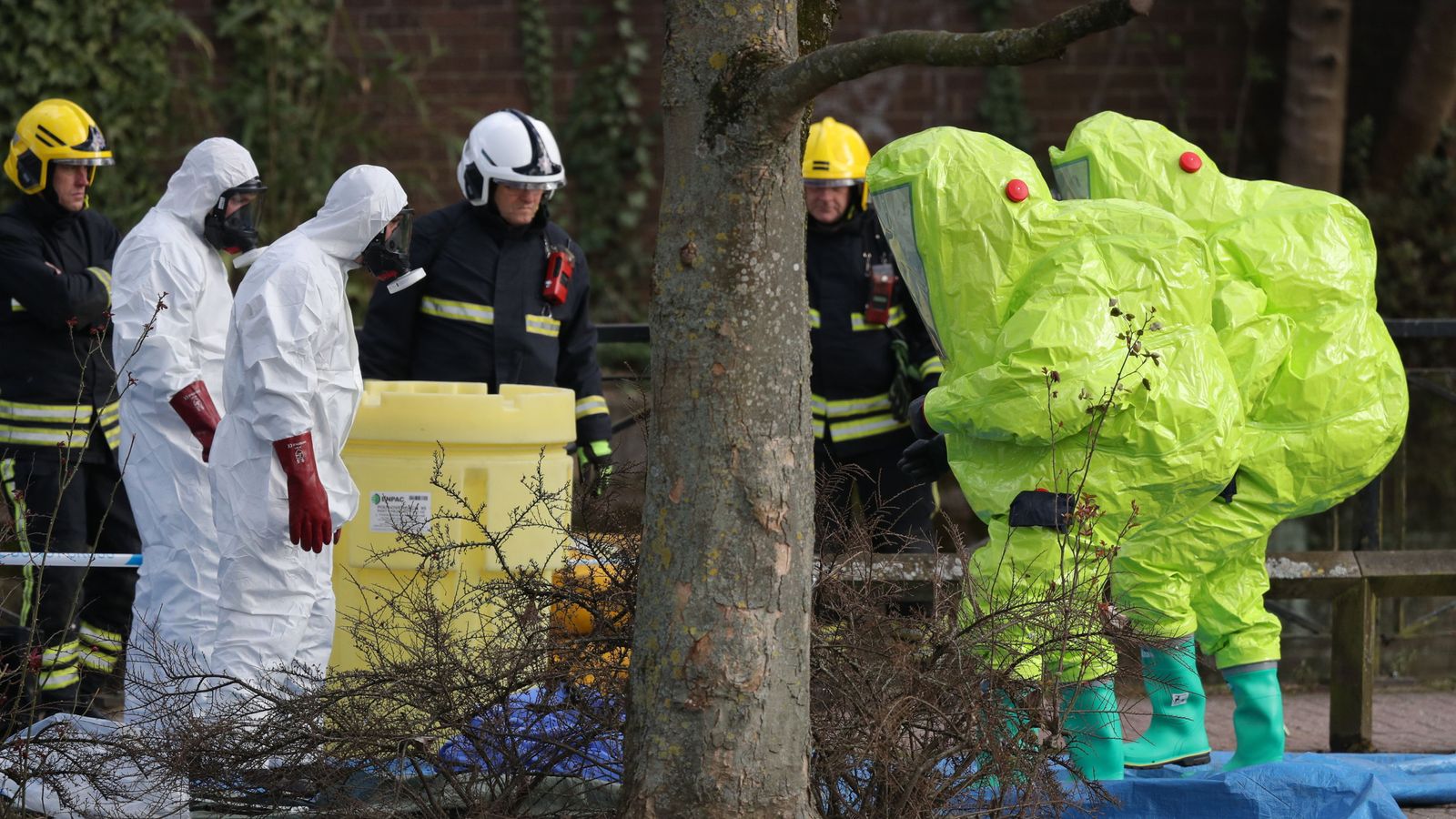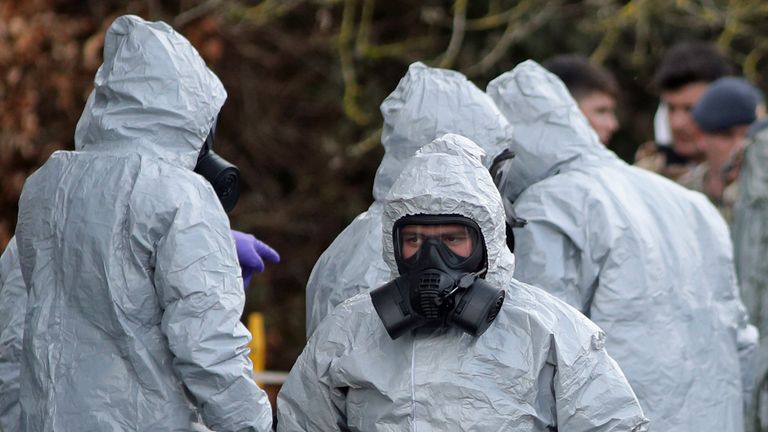The world could face more chemical attacks in the wake of the Salisbury poisonings as people can now learn to make such weapons online, the defence secretary has warned.
Ben Wallace said access to such knowledge “can turn what might be ambitions into realities” for a whole range of attacks by non-state actors.
Mr Wallace continued: “Now you can find out how to make chemical weapons on the internet.
“That proliferation means that many people in the world have access to knowledge that can turn what might be ambitions into realities, around everything from conventional attacks to CBRN (chemical, biological, radiological, nuclear) capabilities.”
Mr Wallace also said it was clear that Russia remained an “adversary” of the UK three years on from the attempted killing of former spy Sergei Skripal using a novichok nerve agent.
The defence secretary said Moscow’s willingness to use a banned chemical weapon on British streets represented a challenge to international law and the world order.
He continued: “We can’t take anything for granted in the way we maybe did in the Cold War when there was a nice, static and fairly sterile relationship with a fence down the middle of Europe.
“What I worry about is when people have disregard for the international rule of law and domestic rule of law and those people are no longer purely terrorists/organised criminals but other states.
“It challenges many of the values we stand for and it challenges the world order. That is something that should worry us all.”
Mr Skripal, a former Russian intelligence officer turned double agent for MI6, and his daughter, Yulia, were left fighting for their lives after they were poisoned with novichok in 2018.
A policeman who attended Mr Skripal’s house was also admitted to hospital after being exposed to the nerve agent.
Four months later, 44-year-old Dawn Sturgess died after apparently picking up the discarded bottle that had contained novichok.
The government subsequently identified two officers in Russia’s GRU military intelligence who, it said, were suspected to have carried out the attack.
The two men known as Alexander Petrov and Ruslan Boshirov are still wanted by UK police after the Crown Prosecution Service authorised charges against them.
Mr Wallace said: “(The novichok poisonings) reminded the West that countries purporting to be world leading countries have a disregard sometimes for international law and sovereignty and seek to deploy some of the worst weapons on our streets.”
He acknowledged there was little immediate prospect of the suspected perpetrators being brought to trial, but said the government would not give up hope that they would one day face justice.
He said that Moscow had deployed a “spectrum” of capabilities in its campaign against the UK and the West, from cyber attacks to the use of “proxies” like mercenaries from the Wagner Group – a Russian paramilitary organisation.
Mr Wallace’s comments come as a chemical and biological weapons expert warned rogue states and terror groups could even try to use coronavirus or similar viruses for attacks in future.
Hamish de Bretton-Gordon said the pandemic has shown how a “not very virulent pathogen can bring the world to its knees” and this will not go “unnoticed by bad actors”.
Analysis: The growing ability of countries and other actors to use chemical weapons could be devastating
By Deborah Haynes, foreign affairs editor
The defence secretary is right to sound the alarm about the potential for more chemical weapons attacks almost three years on from the Salisbury spy poisoning.
Ben Wallace’s words come as General Sir Nick Carter, the head of the armed forces, warns that the gravest threat to the UK is if any one of a number of conflicts across the world were to escalate out of control, either deliberately or by accident, drawing in more countries.
“That’s where the risk will come from,” he said, speaking on the latest episode of Sky News’s Into The Grey Zone podcast, which is out on Monday.
The growing ability – and in some cases willingness – of countries and other actors to use internationally-banned chemical and biological weapons as well as nuclear warheads means the consequences of such an escalation could be particularly devastating.
General Carter told me: “Of course, weapons have proliferated significantly. You know, one of the features of what our authoritarian rivals have done is to develop new technologies, which they haven’t just kept to themselves, they’ve diversified it and proliferated it to their proxies and to their customers.
“And that means that you’ve got a world with far more weaponry in it, including nuclear weaponry, and, of course, including biological and chemical weapons, in it than perhaps we’ve had for many years.
“And that means that a miscalculation could be really rather horrific if it occurs.”



